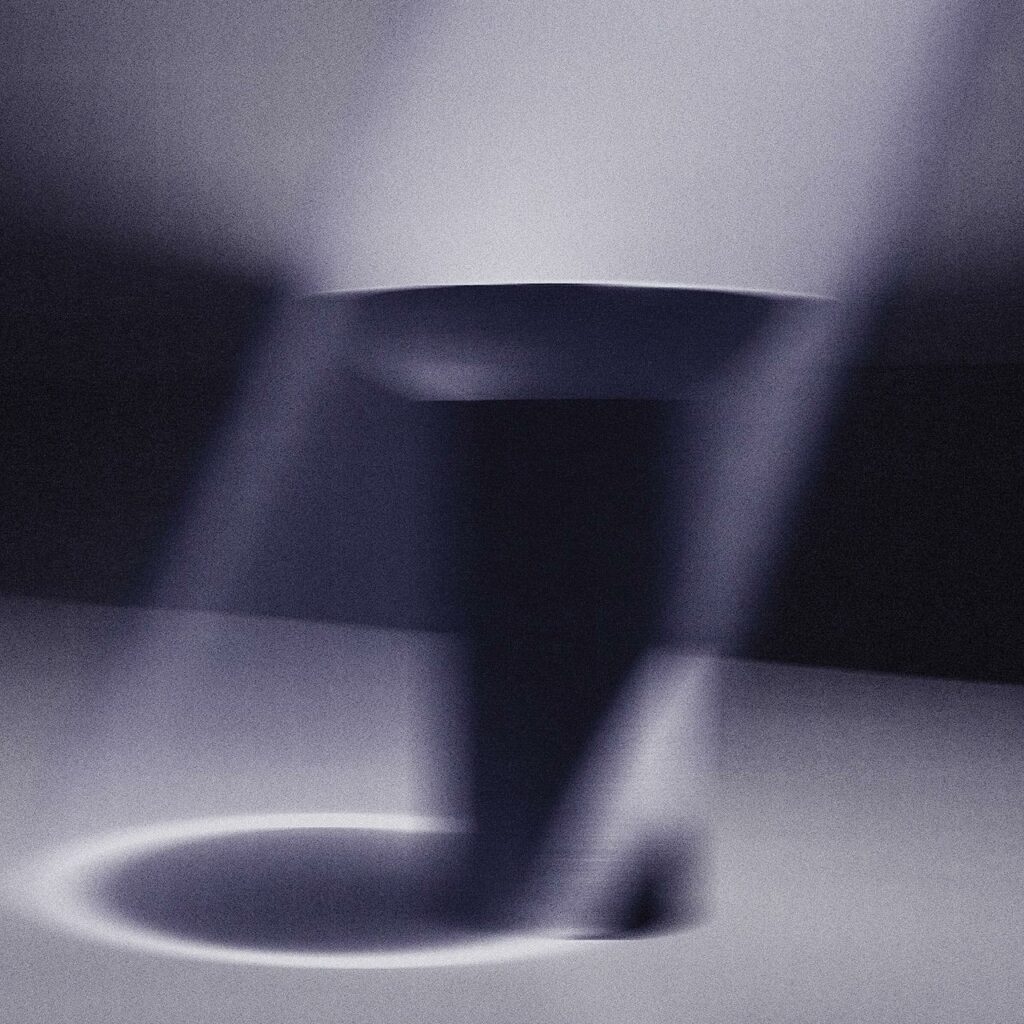In the six years since Jlin’s last proper album, the genre-shattering Black Origami, the bounds of her musical practice have exploded. With conceptual artist Kevin Beasley, she transfigured the sounds of a cotton gin that Beasley installed at the Whitney Museum and performed in the gallery alongside the machine. Her soundtrack to choreographer Wayne McGregor’s Autobiography underscored the power of her music to inspire movement outside the club. Kronos Quartet, fixtures of the contemporary classical vanguard, commissioned the gutsy, virtuosic “Little Black Book,” which required cellist Sunny Yang to stomp out Jlin’s heavily syncopated beats on an actual kick drum while she ripped into a contrasting bassline.
Despite the diversity of these collaborations, and their footing in institutional contexts, they retain all the grit and ingenuity that have been Jlin’s signature since she emerged on the fringes of footwork over a decade ago. The tessellating rhythmic cryptograms that made Black Origami an enigma worth both pondering over and dancing to have remained central, even if they fill a concert hall rather than a nightclub. Her new EP Perspective, a collaboration with Third Coast Percussion, is a more complex venture that moves in multiple directions at once.
The project began with Jlin recording raw materials in the Chicago ensemble’s studio. “It was bliss for me,” she recently told Passion of the Weiss. “I went there and I got as many sounds as I could: the marimbas, the xylophones, a lot of bells and bowls. We were there for eight, 12 hours… I have a whole library of these sounds.” She imported these raw materials into FL Studio, where she sculpted them into bouncing backbeats, adrenaline-rush whirrs of high end, and majestic pulsations. She gave her compositions—which were nominated for the 2023 Pulitzer Prize for music—to the four members of Third Coast to translate back into their own language; the title reflects the idea of approaching the same material from different angles.
On Third Coast Percussion’s recording, released last year, they occasionally sounded hesitant, as if more focused on keeping up with the score than harnessing the elation that produced it. But the obvious joy Jlin felt in the process of creating this music shines through in these electronic versions—not only in the emotions conveyed, but in the depth and detail of the productions. Where Third Coast’s recording was limited to the acoustic timbres available to the ensemble and the physical limitations of their playing, Jlin’s originals, which Third Coast based their own versions on, employ a staggering range of frequencies, from body rumbling sub-bass to chirping melodic accents so high-pitched they might not be audible to many listeners over a certain age.
The brisk four-on-the-floor that leads off “Obscure” mutates less than a minute in, doubling back on itself and leaving pockets of space that destabilize the rhythm. “Derivative” feels like it runs at two different tempos at once, the kick-snare groove heavy enough to inspire a head nod (or booty shake) while a manic synth line darts about anxiously. You can practically hear Jlin smiling through each bar, twisting each rhythm and twisting it again until it surprises even her.
The suite’s final two pieces come closest to achieving a cohesive dialogue between Jlin and Third Coast; that’s particularly true of the marimba- and bell-dominated minimalism of “Duality.” It retains the multi-dimensional shifts that make the previous pieces so engaging, but they happen in more subtle ways and within a more strict, pulse-based rhythmic system. On “Dissonance,” Jlin leaves her sample library mostly untreated and unprocessed; it’s the least electronic-sounding piece she has recorded yet, and the lack of digital bells and whistles reveals new subtleties in her rhythmic and timbral investigations.
Jlin’s nomination for a Pulitzer for this work is a remarkable achievement, as well as a promising sign of progress in elite institutions’ engagement with culture outside the bubble of “high art.” It’s too bad that it required collaborating with a classical ensemble to attract the attention of the Pulitzer committee; her music is rigorous and groundbreaking regardless of context. Perspective is the sound of an artist stretching herself and succeeding—not because of any embrace of the Western classical tradition, but because she challenges its norms so effectively.
All products featured on Pitchfork are independently selected by our editors. However, when you buy something through our retail links, we may earn an affiliate commission.

